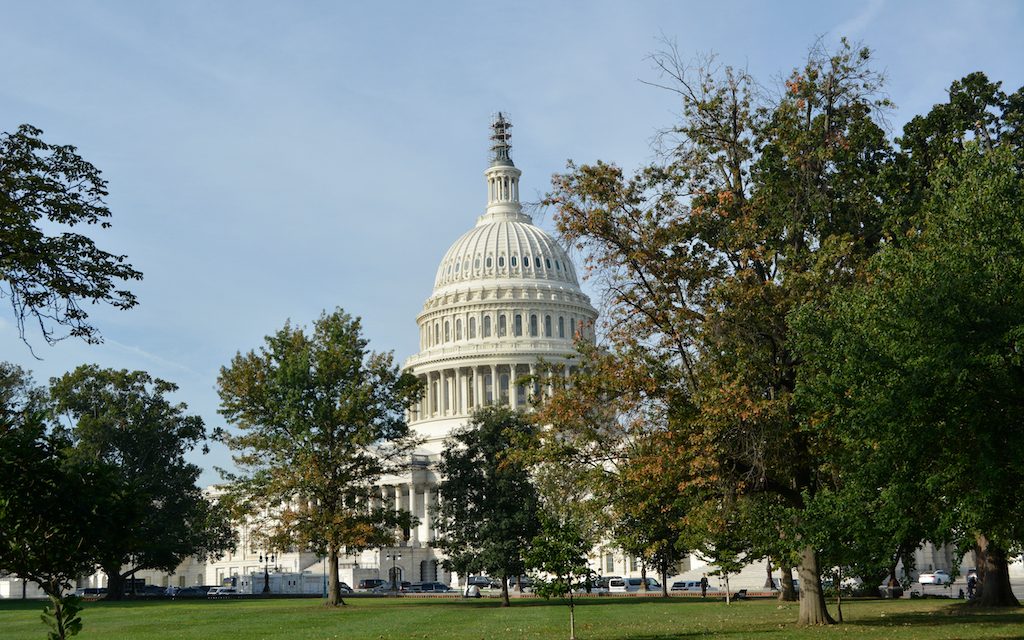By MONICA GODNICK, FATEMA HOSSEINI, JOSIE JACK and RYAN MERCADO
WASHINGTON – A looming federal government shutdown would have severe implications for a range of critical services, programs and benefits that impact millions of Americans.
Many government functions will halt at midnight on Saturday unless there is a breakthrough in an impasse among House Republicans who are fighting over the size of spending bills, funding additional border measures and providing U.S. aid to Ukraine. Thursday brought no signs of a settlement.
House Speaker Kevin McCarthy, R-Calif., insisted Thursday that there would be a deal.
“At the end of the day, we will get this done,” he said on CNBC’s “Squawk Box.”
A frustrated Senate Minority Leader Mitch McConnell, R-Kentucky, warned House Republicans Thursday that “shutting down the government is not like pressing pause. It’s not an interlude that lets us pick up where we left off.”
“It’s an actively harmful proposition,” the GOP leader said. “And instead of producing any meaningful policy outcomes, it would actually take the important progress being made on a number of key issues and drag it backward.”
Senate Majority Leader Chuck Schumer, D-New York, is pressing for passage of a stopgap spending bill that would keep the government open while disputes over longer-term spending can be resolved. He said McCarthy has backed away from the June budget deal crafted between congressional leaders and the Biden administration.
“Despite the fact that many on both sides want to work together, despite the fact that here in the Senate we are pursuing bipartisanship, the speaker has chosen to elevate the whims and desires of a handful of hard-right extremists, and has nothing to show for it,” Schumer said.
Sen. Chris Van Hollen, D-Maryland, said in a statement that senators “are working on a bipartisan basis to keep the government running, while MAGA Republicans in the House are putting politics over people and driving us straight towards a shameful – and avoidable – shutdown.”
“During the (2019) Trump shutdown, I heard directly from Marylanders who were struggling to get the services they need and make ends meet,” Van Hollen said. “From our military members, first responders, and government employees to our seniors and most vulnerable – there’s not a person in our state that won’t feel the impact of a shutdown in one way or another.”
A government shutdown would interrupt discretionary spending, which is about 27% of federal spending. The rest, considered mandatory spending, would carry on. Medicare, Medicaid, Social Security and the U.S. Postal Service would not be affected by a shutdown.
The chairwoman of the Senate Appropriations Committee, Sen. Patty Murray, D-Washington, said Wednesday that “there is no reason for any senator to weaponize Senate procedures and force a totally unnecessary shutdown.” She added that working Americans would bear the brunt of the consequences of a shutdown. Additionally, the financial toll of a shutdown would be far greater than the cost of maintaining government operations.
Goldman Sachs estimated that a shutdown would shave off 0.2% of economic growth for every week it persists.
The effects would not just be limited to federal workers; the ripple effect would also disrupt businesses closely connected to the federal government, such as federal contractors or tourist services near national parks.
The nation’s most vulnerable populations also face the prospect of lost or delayed support.
The shutdown effort is being championed by far-right Republicans directed by former President Donald Trump, Rep. Jamie Raskin, D-Maryland, charged during a Thursday hearing by the House Oversight and Reform Committee.
“Trump’s convinced that if we shut the government down, his four criminal prosecutions on 91 different felony and misdemeanor charges will be defunded and delayed long enough to keep him having to go before a jury of his peers before the 2024 election,” Raskin said. “And like flying monkeys on a mission for the Wicked Witch of the West, Trump’s followers in the House now carry his messages out to the world: shut down the government, shut down the prosecutions.”
How a shutdown would affect the nation:
- The shutdown would halt the pay of millions of federal workers across the nation. Many of the 2 million civilian workers, ranging from U.S. Park Police officers to Social Security Administration employees, would encounter delayed paychecks. Over 138,000 federal civilian workers are located in Maryland.
- Non-essential federal workers and contractors would be furloughed. Other federal workers who are considered essential or “excepted” would continue working during the shutdown. Once the government re-opens, federal workers usually get paid retroactively. Yet the pay of contractors is more uncertain because they don’t have the same protections as full-time federal workers.
- Active-duty service members in the United States and abroad would work without pay. Of these 1.3 million active-duty service members, 53% are married and 39% have children, according to the National Library of Medicine. There are 29,500 active-duty service members in Maryland.
- The Special Supplemental Nutrition Program for Women, Infants, and Children (WIC), a federally-funded program to help low-income mothers with young children purchase food, would stop receiving funding and would soon run out of money. This means participants would experience reduced or no benefits. According to the USDA, there were 6.3 million WIC participants in 2022, including 118,783 in Maryland.
- Head Start, the federally-funded program that helps prepare children from low-income families for school, would not receive grants during the shutdown. This would result in the immediate loss of access to the program by 10,000 children, according to a statement from the White House.
- The National Institutes of Health would have to delay new clinical trials for diseases such as cancer, preventing patients from receiving new treatments.
- The Environmental Protection Agency would cease most inspections at hazardous waste sites, chemical facilities and drinking water facilities.
- Long-term recovery funding from FEMA’s Disaster Relief Fund would be halted, including 12 recovery projects in Hawaii, according to a White House press release. This could potentially harm citizens still recovering from recent disasters. It could also set back community preparedness for future disasters. In Maryland, they would press pause on 11 projects.
How a shutdown would impact the economy:
- Goldman Sachs estimates a government-wide shutdown would directly reduce economic growth by about “0.15 percentage point for each week it lasted, or about 0.2 percentage point per week once private sector effects were included.”
- Still, Goldman Sachs projects that in the quarter after the government would reopen, “the growth would rise by the same cumulative amount.”
- Since federal workers would not receive paychecks, local economies would be impacted, Agriculture Secretary Tom Vilsack said Monday. For example, a Goldman Sachs survey showed two out of five Americans cut their spending during the 2014 government shutdown, which lasted a little over two weeks.
- As for the travel economy, the shutdown would cost $140 million daily, according to new research from the U.S. Travel Association, which said air travelers would face more “flight delays, longer screening lines and setbacks in air travel modernization.”
- The Small Business Administration would stop reviewing or accepting applications for any new business loans, impacting funding for small businesses across the nation.
Functions that would not be affected by a shutdown:
- The U.S. Postal Service would continue operations, including mail and package deliveries. USPS is funded through the sale of postage stamps or other postal products and services.
- People would still receive Social Security checks, Medicare and Medicaid, but some services, such as the issuance of new Medicare cards, would be halted.
- Passport services and consular services would still continue as normal. However, if a shutdown persists for many days, these services could take longer.
- Veterans’ benefits and pensions would still be paid and the Department of Veterans Affairs would retain most of its employees.
- The president and members of Congress would continue working, but any non-essential employees would be furloughed.
- The judiciary would continue to operate for at least two weeks with money collected from court fees and other sources of money not dependent on government funding. This would not impact current federal investigations such as those involving Trump.
- Several federal agencies, such as the Department of Justice and the Department of Homeland Security, have contingency plans in place if funding runs out, but only to keep on essential personnel for critical jobs.
- Employees in the Department of Transportation, such as Air Traffic controllers would still show up for work, but would not be paid until funding is restored.
- Popular federally-managed tourist destinations, such as the Smithsonian Institution’s museums and the National Zoo in Washington ,would close, as would national forests. But the National Park Service might keep monuments and hiking trails open on a limited basis as it did in the last shutdown in 2018, with no guided tours or access to bathrooms.
“Shutting down the government isn’t good for anyone. The American people want off this ride,” Sen. Ben Cardin, D-Maryland, tweeted. “We have an obligation to get these bills passed.”





Recent Comments